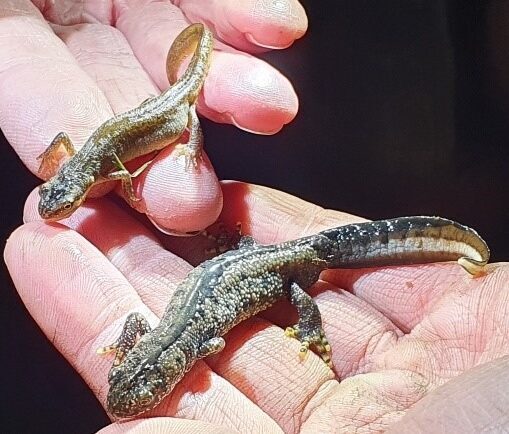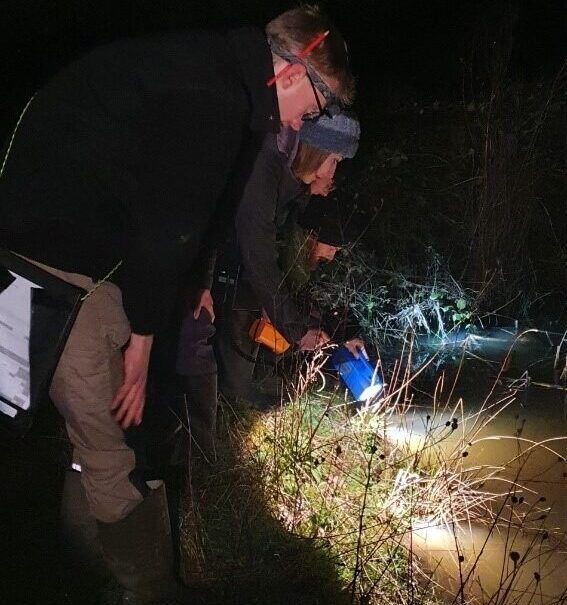Ultimate Guide to Bird Nesting Season in the UK: Dates, Tips, and What You Need to Know!
As the days grow longer and the first signs of spring appear, bird enthusiasts across the UK eagerly anticipate the arrival of nesting season.
Grounds Maintenance, Landscape Creation, Arboriculture, Sports Surfacing, Parks management, IOS Managing Safely Training, Ecology & Biodiversity, Grass cutting, Horticulture, Street Cleaning, Soft Landscaping, Hard Landscaping
idverde provides a wide range of green services, including grounds maintenance, landscape creation, and advice services, to both private and public sectors across the UK.
The 30th of April is Save the Frogs Day, which is the world’s largest day of amphibian education and conservation action. The London Borough of Bromley has a range of sites that are important to the conservation of amphibian species, some of which are identified to be registered as Kent Key Sites for Amphibians due to their exceptional nature of the populations present.
Bromley is fortunate to have an abundance of Common frogs (Rana tempoaria) Common Toad (Buffo buffo) and all three native newt species; Smooth (Lissotriton vulgaris) Palmate (Lissotriton helveticus) and Great Crested (Triturus cristatus).
All amphibians in the UK are protected by law to varying degrees. Toads for example are protected under the Natural Environment and Rural Communities (NERC) Act (2006), which gives them consideration in the planning system due to loss of habitat, especially breeding ponds for which they are religious in returning to their pond of birth each year to breed.
Great Crested newts are one of our more highly protected species due to large declines in their range and abundance in the last century. Therefore a license is needed to disturb this species.


Each spring idverde and RSPB staff in partnership survey a number of sites to monitor the populations of amphibians present. The data from these surveys helps to inform local and national trends in population as well as inform management decisions of the habitats they reside.
Some amphibians such as the great crested newt form metapopulations which mean they will use a network of ponds and connecting habitat within an area. This means that habitat management has to be coherent on a landscape scale.
The majority of surveys are undertaken at night when amphibians are most active using high powered torches to look into ponds but other methods can also be used such as bottle tapping, netting and egg searching and refugia searching all of which has be undertaken under strict licensing.
Licences to survey great crested newts for conservation and research take a minimum of two years to achieve with applicants needing to be proficient in undertaking all the methods safely, to a high standard with high regard for animal welfare. Applicants also have to be able to undertake Habitat Suitability Indexing (HSI).
All applicants have to be signed off by two experienced licence holders, therefore idverde has worked in partnership with the RSPB to train and upskill its team in Bromley to survey and manage the amphibians present.
One key challenge in surveying and enhancing habitats for amphibians is aquatic Invasive Non-native Species (INNS) such as Crassula helmsii and Floating pennywort, these species pose a significant risk as they grow into dense mats causing shading and oxygen deprivation leading to declines in other pond species. These species are often spread pond to pond or between sites by transfer of small fragments as small as 10mm therefore surveyors and site managers have to put in place strict biosecurity measures to prevent their spread.
In recent years the surveying efforts have contributed towards the rationale for having more ponds resorted on the Scadbury Park estate to enhance the metapopulations of great crested news and other amphibians on the site.
Additional to surveying, idverde and RSPB educate the community through partnerships and training workshops as part of the Biodiversity Action Plan on behalf of the London Borough of Bromley.